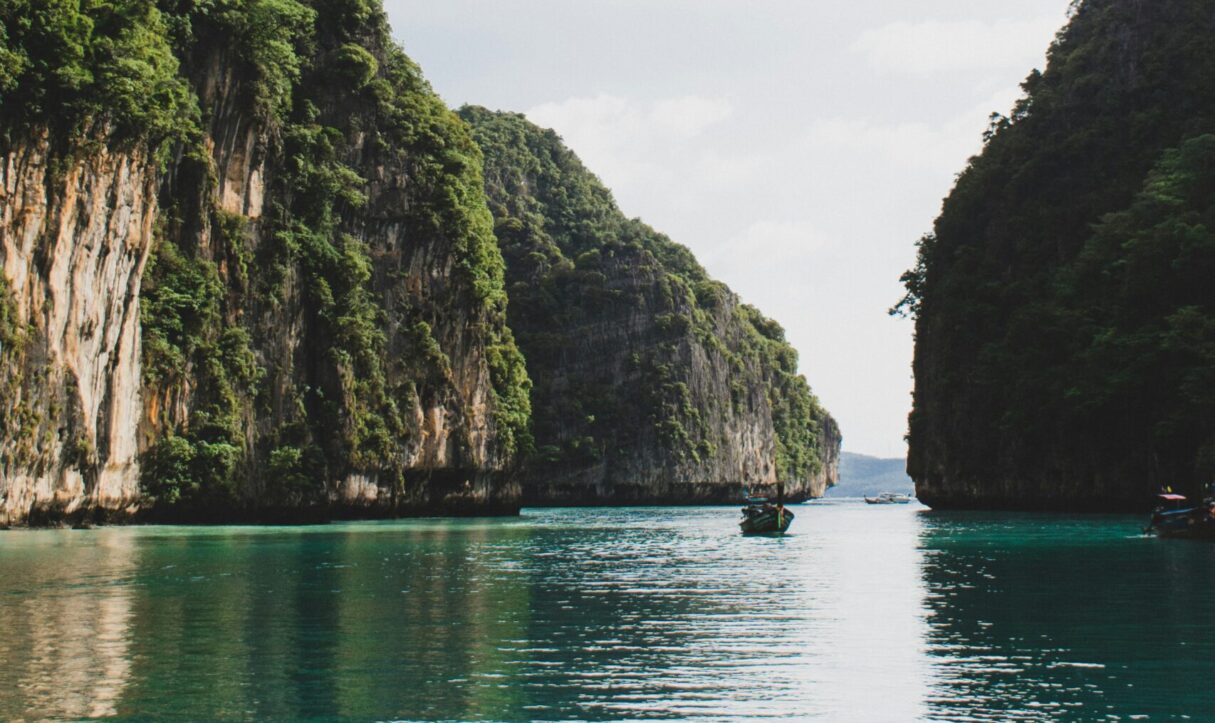In February, the EU concluded two important meetings with representatives of Indo-Pacific countries: the third EU-Indo Pacific Ministerial Forum and the 24th ASEAN-EU Ministerial Meeting (AEMM). Representatives from over 70 countries from across the region that reaches from East Africa to the island states of the Pacific Ocean were present. Visibly absent from the ministerial meeting forum were the United States and China, who were not invited, which led some observers to speculate that this was a “diplomatic move to allow other countries to pursue their own interests without being forced to choose sides.”
Diverse Viewpoints
What came to the fore at the meetings were fundamental differences between European and Asian countries, particularly relating to the ongoing Russia-Ukraine war and the Israel-Palestine conflict. This was reflected in the joint ministerial statement from the AEMM, which notes that while “most members” condemned the Russia-Ukraine war, there were “other views and different assessments of the situation and sanctions.” On the war in Gaza, notably, Indonesian foreign minister, Retno Marsudi, in her statement to the forum, noted that “respecting values and principles of international law… should also be applied to Palestine, to Gaza.” Similarly, Sri Lankan Foreign Minister, Ali Sabry, while reiterating the importance of respect for international law, publicly called out the “double standard” of the “Western world… when it comes to the Middle East and the plight of the Ukrainians.” The Indian representative echoed a similar sentiment, albeit couched in a more muted tone when he reiterated the need for dialogue despite the countries having different perspectives.
Many senior leaders from the region who were present in the previous editions of the forum, such as India’s external affairs minister Subrahmanyam Jaishankar and his Japanese counterpart, Yoko Kamikawa were missing and opted to send lower-level officials. The French and German foreign ministers were also notably absent. In yet another departure from the preceding two editions, Belgium, which took over the rotating presidency of the Council in January, decided not to co-host the forum, although it was held in Brussels. In 2022 and 2023 Paris and Sweden respectively co-hosted the forum under their rotating presidency of the Council.
Inroads in the Indo-Pacific Region
So, what to make of these developments? Does it mean Europe is no longer interested in the Indo-Pacific? No, on the contrary, more and more European countries are making their presence felt in the Indo-Pacific. While France, Germany, Netherlands, Czech Republic, and Lithuania had the first movers advantage, releasing their Indo-Pacific strategies early on, today we are witnessing Italy and Greece also make inroads in the region. It is clear that EU member states do understand and acknowledge the importance of the Indo-Pacific region to their national sovereignty and prosperity. Despite increasing attention from individual member countries, the European Union as a whole remains largely uncoordinated when it comes to policies towards the region, which reinforces the perception that the EU is not a strategic actor there. The EU itself is not oblivious to the realities of the perception of regional countries evident from foreign policy chief Josep Borrell’s rather candid admission that “Europe is still largely seen as an extra-regional actor with limited impact on the regional security dynamics of the Indo-Pacific.”
Despite increasing attention from individual member countries, the European Union as a whole remains largely uncoordinated when it comes to policies towards the region, which reinforces the perception that the EU is not a strategic actor there.
When the EU released its Indo-Pacific strategy document in 2021 it was well received, as it sent a strong signal to the world that the EU was interested in greater, more diverse engagement with countries in the region. Indeed, the strategy was an excellent starting point for the bloc. However, almost three years later, it is clear that the document has not led to any strategic reorientation. The EU has been able to increase the concentration of European ships in the region, especially with the extension of the EU’s Coordinated Maritime presences (CMP) in the North Western Indian Ocean region by establishing a maritime zone of interest extending from the Strait of Hormuz to the Southern Tropic and from the North of the Red Sea towards the center of the Indian Ocean. However, the value of such naval engagements must not be overestimated for two main reasons. First, regional countries themselves, particularly the littoral states of the South China Sea, are wary of the presence of international military forces in their immediate neighborhood, stemming from their fears of increased militarization and the possibility of accidental clashes. Second, pressures closer to home with the volatile security developments due to the ongoing Russia-Ukraine conflict, raise significant apprehensions over whether the EU will be able to sustain its naval presence in the region.
Collaboration
A step in the right direction has been the EU’s inclusion as a dialogue partner of the Indian Ocean Rim Association (IORA) earlier this year. By fitting into the existing regional architecture, it sends the crucial message that European engagement in the region is catering to the needs and requests of the regional countries and is truly inclusive and collaborative in nature. Now it remains to be seen what contribution the EU can make as a dialogue partner.
Unsurprisingly, France is taking on most of the EU’s Indo-Pacific burden now, given that it views itself as an “island state” in the Indo-Pacific due to its overseas territories there. However, in view of Paris’ own economic woes, better load-sharing mechanisms will be necessary to ensure a lasting EU presence in the region. While individual member countries are bilaterally expanding ties with members in the Indo-Pacific, it is unclear whether they will be willing to do so under the EU umbrella. Navigating internal divergences among member states will be the key challenge. Until then, the EU approach to the Indo-Pacific will remain one where the sum of its parts is greater than the whole.





















